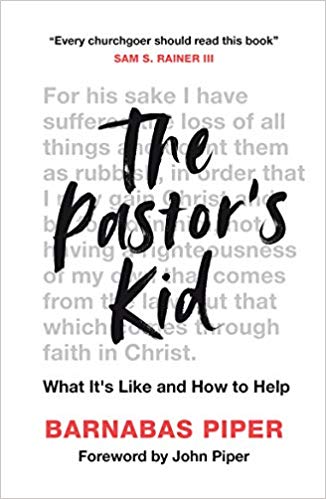Pastors’ kids need parents more than they need pastors. They need conversations more than sermons. They need a patient listener more than stern advice. These are all nice concepts, but how exactly can pastors (and spouses) do this? Here are 7 questions you can ask to help them bridge the gap between ministry and your children.
(Note: These questions are only useful if your children feel safe being honest and vulnerable and know that you are ok being vulnerable too.)
Do you feel like you’re different than other kids your age because of what I do?
Just be blunt. Be bold to ask. You might not like the answer, but it will likely peel away a façade you might not have even known existed. This could be the precursor to conversations about identity, pressure, expectations, legalism, and a whole heap of stuff that can skew a PK’s perspective on Jesus, the church, and grace.
What kinds of expectations do you feel like people put on you because you’re a PK?
Cue venting, ranting, and possibly tears. Many PKs have pent up frustration (ranging to rage) at the competing expectations they often feel obliged to fulfill. Expecations to be, to do, to not do – they pile high and deep. By asking you are lancing an angry boil and applying a soothing salve – listening and empathy.
Do you feel like I expect anything unfair from you as a PK?
Now you get to the next layer. It is relatively easy for PKs to vent about those people. But can they do the same about you and how you hold them to an unfair standard? Or maybe you don’t hold them to an unfair standard at all but they don’t understand why their life is just different than others or why they can’t do certain things. Either way this is an opportunity to sort through some tangled, difficult, painful stuff. To do that you must be willing to humbly admit any fault.
Do you think I act the same and treat people the same at home as I do at church?
Now that you’re here, what’s a little more vulnerability? You’re now asking your kids to help you be a better parent (and pastor). They know you inside and out. They see you every day. They know when you’re full of crap. So let them call you on it. Apologize. Ask for forgiveness. And repent. You will all be better for it.
Who is Jesus to you? What does He mean to you?
Be careful with this one. Your kids know what you want to hear and will default to that. They know what they are supposed to believe and what you teach week in and week out, and they will parrot that. Don’t assume that what they say first is what they truly believe. Don’t assume they know what they believe. Prod a little. Massage the conversation. Don’t interview or cross-examine. Don’t frown or challenge. Again, just listen and understand. Don’t teach or lecture (you do that for 40 minutes every Sunday and probably a few other times too). Tell them what Jesus means to you and how He’s changed your life. Tell them about the hard times you have following Jesus. Make Jesus a God-Man worth having a relationship with, not just the subject of a sermon.
Is there anything your struggling with or having a hard time with?
Be patient. They might not ant to answer this at first. But if they have seen you admit fault and humbly ask forgiveness then it will be easier. Easier still if you’ve done this toward them. Lead with your weaknesses and create an easier context for them to be honest. Then remember that the best correction isn’t angry and doesn’t look down. It’s patient and pointing upward.
Do you want to go get ice cream? (Or play catch, or grab coffee, or see a movie, or ride bikes, or . . .)
This is really the crux of the whole deal. All the other questions will dry up if your kids don’t like you and kids like nothing more than simply being with you and doing fun stuff. Spend time doing what they love. Invite them to do what you love. Just be with them. It’s in these contexts that the best conversations start and flourish. And your kids can flourish too.
 For more on the experience of pastors’ kids, the challenges they face and how pastors or church members can support them check out my book The Pastor’s Kid: What it’s Like and How to Help.
For more on the experience of pastors’ kids, the challenges they face and how pastors or church members can support them check out my book The Pastor’s Kid: What it’s Like and How to Help.
